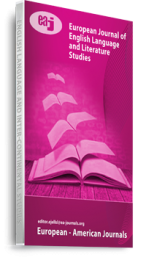This paper addressed the lack of critical engagement with ecological ethics in Nigerian theatre, despite the country’s worsening environmental crises. Using “Obeseri: Rumble in the Wild” by Rudolph Kansese as a case study, the study applied Una Chaudhuri’s theories of Geo-pathology and Species thinking to examine how performance can move from raising awareness to provoking moral reflection on environmental loss. Employing qualitative and textual analysis, the study interprets Obeseri as an eco-theatrical narrative that dramatizes the contradictions between cultural heroism and ecological collapse. It revealed the forest as a grieving entity and animals as ethical witnesses, thus challenging anthropocentric storytelling and reinforcing the moral complexity of traditional folklore. The study contributed to African performance scholarship by showing that Nigerian theatre rooted in ritual, myth, and communal ethics holds powerful potential for environmental advocacy. It recommended ecologically conscious set and costume design, dramaturgies grounded in indigenous knowledge, and performances that treat nature as an active presence. The article concluded that eco-theatre in Nigeria is both relevant and urgent, offering a creative and ethical platform for imagining a more sustainable future.
Keywords: .eco-theatre, Environmental sustainability, Ethics, Folklore, dramatic performance

